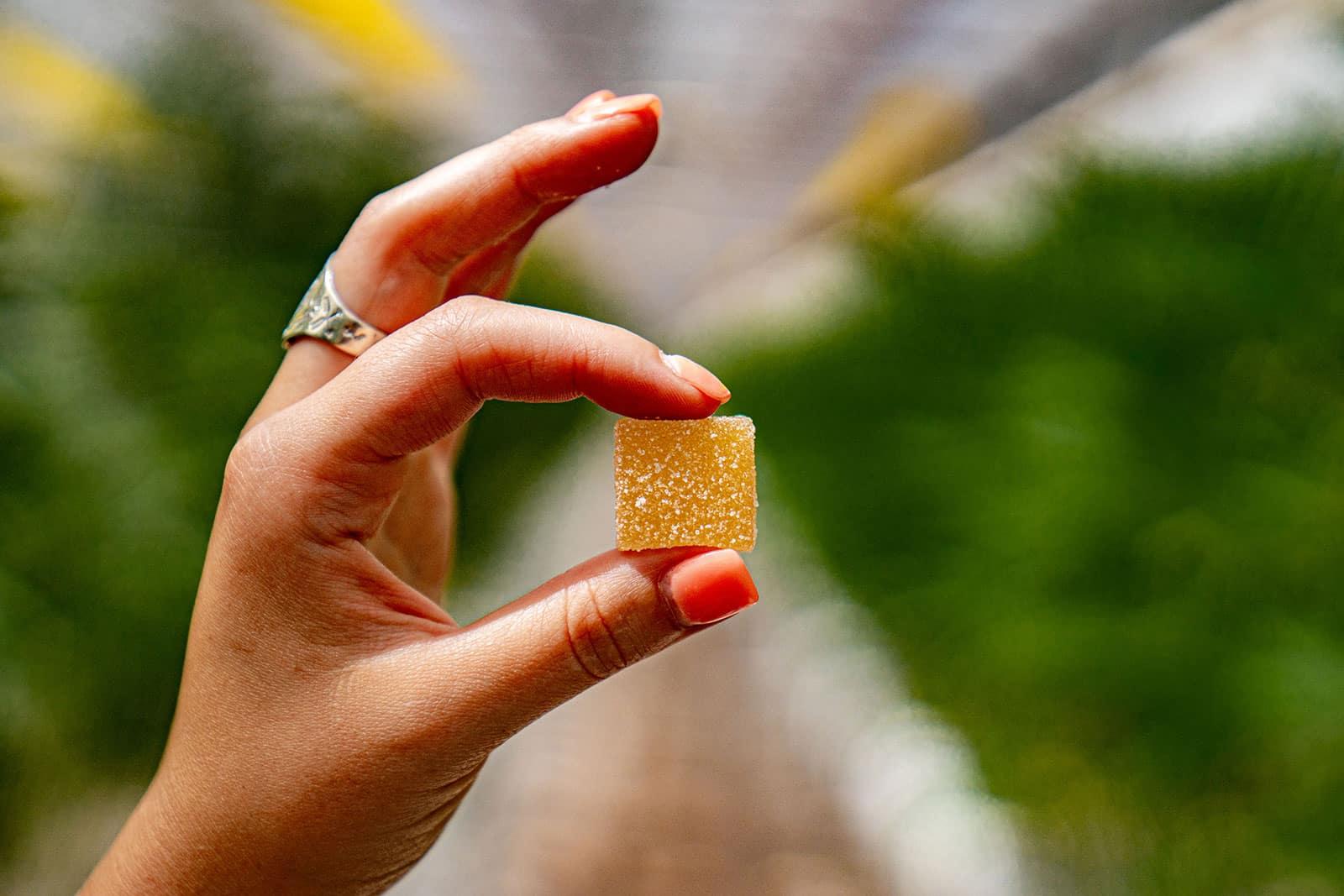Any food or drink containing THC is edible. One can create them at home, buy them ready-made, or find recipes online.
Both the onset time and the duration of the high from edibles are discussed here. The risks and alternatives to consuming marijuana are also covered.

How long do they take to kick in?
Cannabis contains THC and CBD. THC is marijuana’s psychoactive component. The Washington State Liquor Control Board caps THC at 100 mg per product and 10 mg per serving.
Research reveals that cannabis consumption has longer-lasting effects than inhaling. This is because contrary to smoking, where cannabis is taken swiftly into the bloodstream and dispersed rapidly in the brain, edibles first need to reach the digestive system. You can buy the best THC edibles from here https://trehouse.com/collections/thc-gummies/
Ingesting THC takes 30-90 minutes to work, according to one study. After two to three hours, full effects appear.
How quickly edibles work depends on many factors. BMI, metabolic rate, gender, and time since the last meal are influences.
Sublingual dosage, or sublingual absorption, speeds medicine transport to the bloodstream. Sublingual products like lollipops and tinctures may work faster.
Examining Edible Cannabis with a High THC Content and Understanding Its Strength
The scientific basis for the high from edible cannabis products is how they interact with the body. After eating, the liver metabolizes THC and CBD. THC becomes 11-hydroxy-THC, a stronger blood-brain barrier-crossing molecule. Due to their unique metabolic pathway, edibles cure chronic pain, anxiety, and sleeplessness better than smoking or vaping. To minimize overconsumption and negative effects, start with a low dose and gradually increase it due to edibles’ rising strength.
How long they last
One study found that the effects of edibles lasted anywhere from 4-12 hours, albeit this varied widely by individual factors including dose and tolerance level.
In 2017, researchers reviewed 5,000 tweets about edibles and discovered that 12 percent of them mentioned the potency or enduring nature of the high.
The Powerful Effects of Edible Cannabis
The effects of consuming a cannabis-infused taste are truly miraculous. Your liver undergoes a metabolic process that converts the existing cannabinoids into an even more potent version called 11-hydroxy-THC. This alteration leads to a more profound and protracted euphoric experience as 11-hydroxy-THC connects with cannabinoid receptors in the brain. Prepare for a rush of exhilaration and a distorted sense of reality that can persist for hours. If the appropriate dosage is not followed and patience is not applied, the results may be unpleasant. Proceed cautiously, but don’t ignore edible cannabis’ great potential. Prepare to be astonished and out of the ordinary.
Exposing the Positive Effects of Edible Cannabis

The euphoric effects of edible cannabis aren’t everyone’s concern. THC and CBD in cannabis interact with the endocannabinoid system, which regulates many physiological processes and is vital to health. Cancer treatment, nausea and vomiting, multiple sclerosis pain, and chronic pain may benefit from edible cannabis. THC’s analgesic properties may help relieve pain.
What You Need to Know About Edible Cannabis If You Plan to Use It Regularly
Regular consumers of cannabis edibles must think about the long-term effects of their habit. Prolonged and frequent usage of edible cannabis can have diverse consequences on physical and mental health. The risk of dependency and addiction is a major issue. Some people acquire cannabis use disorder, which causes reluctance to cut back, withdrawal symptoms, and poor life effects. Cannabis usage can impair cognition over time, especially in teens and young adults. Chronic cannabis usage decreases learning, attention, and memory. Like smoking cannabis, severe and prolonged edible cannabis use can cause respiratory issues like bronchitis and lung infections.
Consumers of edible cannabis should be aware of these risks and give serious thought to adopting moderate and responsible usage behavior’s.
Conclusion
Cannabis edibles’ physiological impacts are exciting new research. Because the liver converts THC into 11-hydroxy-THC, edibles have stronger and longer-lasting effects. A safe and enjoyable experience requires understanding the dose requirements and assessing the risks and measures. Eating cannabis may have medical benefits, but continuous use carries hazards. We need knowledge and safe consumption to appreciate and utilize cannabis edibles’ potential. This will expand recreational and medical usage.
